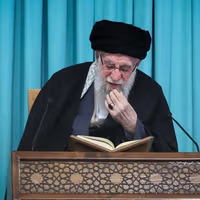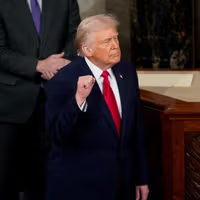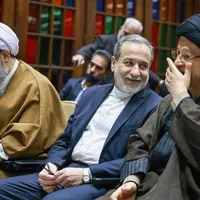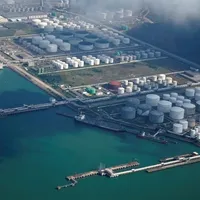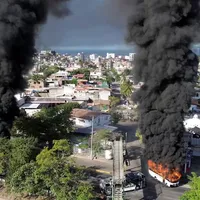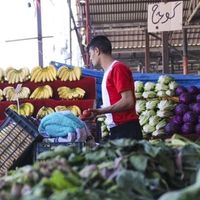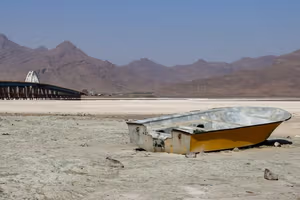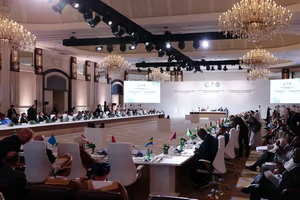As the lines open, I picture Tehran under its nocturnal dome, a sky not dark but dimmed, as if a giant thumb has pressed the horizon into a bruise.
The city breathes shallowly now. Pollution maps pulse in colors that feel less like data than diagnosis: orange, red, a purple so deep it suggests something beyond neglect, something closer to abandonment.
To the north, the Hyrcanian forests, once described by an old ranger as “green witnesses from before language,” have been burning for weeks. Flames move through those ancient stands with a slow, deliberate patience, as if obeying an unseen logic.
From a distance, these may appear as separate misfortunes, poisoned air in the cities, burning lungs in the mountains.
But the longer I listen to callers, the more the crises merge into a single story. In Iran today, even breathing has become contested terrain. Breathing itself is political.
Neither dawn nor dusk
Tehran, a metropolis of more than thirteen million, has offered its residents only a handful of clean-air days this year.
In Karaj, Ahvaz, Mashhad, Tabriz and Isfahan, air-quality readings have climbed into ranges Americans might remember from the rare weeks when wildfires smothered the West Coast.
In Iran, though, the crisis is not a season, it is a condition. Schools close. Emergency rooms fill. Children learn to recognize, by color alone, the days when they must stay indoors. The city moves under a half-light that resembles neither dawn nor dusk.
The voices that reach me on “The Program,” my nightly show, arrive with a clarity that often anticipates scientific explanation.
A mother whose children wake coughing. A factory worker whose exhaustion seems to begin in the mind, not the muscles. A man who runs a short errand and ends the day bedridden.
Later, experts explain these stories in clinical language: microscopic particles slipping through the lungs into the bloodstream, crossing the blood-brain barrier, raising the risk of heart disease, cognitive decline and dementia.
By the government’s own admission, roughly sixty thousand Iranians die each year from air pollution, or nearly 160 people every day.
Hyrcanian forest
Far from the capital, the forests fight their own losing battle for air. The Hyrcanian woodlands, recognized by UNESCO for their botanical uniqueness, have burned across the hills of Chalus and Dizmar.
Each morning, new smoke rises behind press briefings that insist the fires are “contained.” Despite years of warnings, Iran lacks any aerial firefighting ability.
These fires are not anomalies. They are symptoms of deforestation, unrestrained development and a bureaucracy that mistakes denial for strategy.
Nearly half the forests have already been lost. What should be a coordinated national response has instead become a volunteer effort carried out by the people least equipped to shoulder the burden.
Meanwhile a state capable of constructing an enormous surveillance apparatus remains unable to protect the most basic conditions of life: water that sustains, forests that stand, air that does no harm.
For years, Iranians have described political repression as a form of suffocation.
Now the metaphor has become literal. Cities are not simply policed, they are choking. Forests that once served as the country’s lungs burn in pale columns visible for miles.
The distance between living politically and living biologically narrows by the day.
Each night, as the program winds down, I repeat a simple invitation: send a message, and we will send you a link that connects you directly to our studio.
The microphone will pass from my hand to yours. It remains, against the scale of the crisis, a fragile gesture. But in a country where breathing grows harder each year, refusing silence is no longer only a political act, it is an act of survival.
My last caller tells me invokes rock band Nine Inch Nails in a proud, defiant voice: “I got my fist, I got my plan. I got my survivalism.”
I smile. She hangs up, and that is our show for tonight, I say. Take care of the person sitting next to you. I will see you tomorrow night at eleven p.m., Tehran time.
“We are off air,” my director tells me. I lower my forehead to the microphone, close my eyes, and take a long breath.




